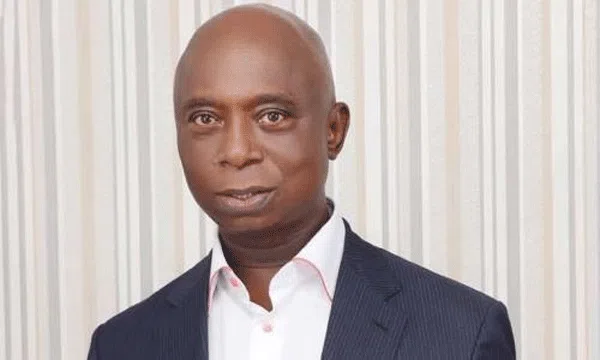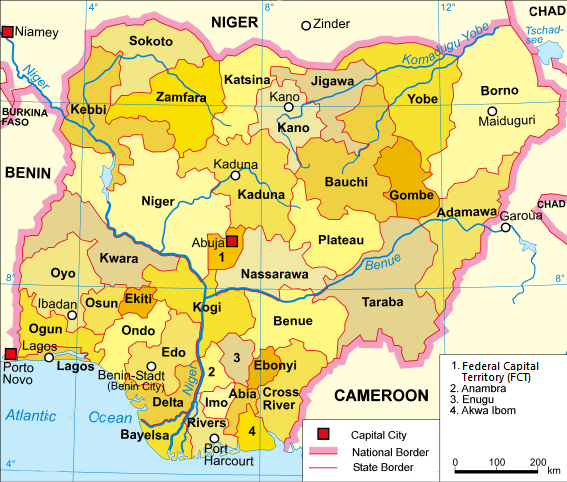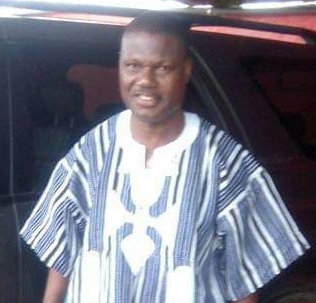Senator Nwoko’s plea to allow Nigerians to carry arms to protect themselves and their families against the multiple threats which they face everyday including armed robbery, banditry, kidnapping, extrajudicial killings, environmental unrest, ethnoreligious violence, clashes between herders and farmers, and ritualistic murders (‘money rituals’) is understandable in view of the government’s inaction or incapacity to improve the security situation in the country.
The reason to include his plea here is the repeated reference to ritualistic murderers who terrorize the population of Africa’s most populated country (over 213 million in 2021) notably in the southwest, southeast and south-south of the country – but one cannot escape the impression that no state is spared from these heinous crimes (also see my January 9 posting).
(webmaster FVDK)
Incessant Killings: Nigerians should be allowed to carry guns, says Sen Ned Nwoko

Published: January 4, 2024
By: Henry Umoru, Abuja – Vanguard, Nigerią
Senator Ned Nwoko, PDP, Delta North has said that if the incessant cases of armed banditry, kidnappings and wanton destruction of property must be nipped in the bud in the country, there should be the introduction of a bill that would allow civilians to own and carry firearms.
According to him, a bill to be introduced to that effect has become imperative following the security challenges, particularly the recent Plateau killings of December 24, where no less than 100 civilians were killed in the attack.
In his proposed bill tilled, My Amendment Bill on Controlled Firearms Ownership. Matters Arising and made available to Journalists yesterday in Abuja, Senator Nwoko said, “The prevailing insecurity in Nigeria has become a pressing concern for all conscientious citizens, leaving many questioning the root causes that led to this dire situation where safety feels elusive. Instead of abating, the issue continues to worsen, spiralling out of control.
“The northeast has been entrenched in a humanitarian crisis for almost two decades due to the Boko Haram insurgency. The northwest deals with illegal mining, ethnoreligious violence, and banditry. In the southwest, there’s a surge of armed robbery, kidnappings, extrajudicial killings, clashes between herders and farmers, ritual killings, and banditry. The southeast grapples with ritual killings, secessionist movements, kidnappings, conflicts between herders and farmers, attacks by unidentified gunmen, and banditry. Meanwhile, the south-south is still troubled by militancy, kidnappings, and environmental unrest.” (italics and bold letters added – webmaster FVDK).
“In light of the alarming escalation of insecurity in our communities, the safety and protection of citizens have become paramount concerns. The persistent threats and violence have left many feeling vulnerable and defenceless. A recent and poignant example is the violent attack that occurred during the last Christmas season, where about 200 people were killed by terrorists across different communities in Plateau state. Considering these dire circumstances, there’s a growing call for responsible firearm ownership as a means of self-defence.
“An amendment bill allowing civilian firearm ownership must be introduced in the Senate. My bill on self-defence and firearms ownership regulation, currently listed in the Senate awaiting its first reading, deals with this pressing issue. I am pleased that the topic has gained national significance, sparking diverse opinions and discussions that predominantly fall into two camps – one in opposition and the other in support.
“It is evident that the existing security measures have not been sufficient in safeguarding our communities. Allowing law-abiding citizens to possess firearms could potentially provide a sense of security and a means to protect themselves and their families from immediate threats.
However, it is crucial to emphasize that the initiative to permit firearm ownership is accompanied by stringent regulations and comprehensive training. This approach ensures that firearms are in the hands of responsible individuals who understand the gravity of such ownership and are equipped to handle these weapons safely.
“The illegal smuggling of arms is a significant concern due to the prohibition on bearing arms. Introducing licensed dealerships for firearms could potentially address this issue by creating a regulated avenue for legal firearm acquisition. This move not only seeks to curtail illegal arms trafficking but also provides an opportunity for generating income through licensing fees and taxes imposed on these dealerships.
“The revenue generated from licensing fees and taxes on firearm dealerships could be allocated towards bolstering law enforcement agencies, improving security infrastructure, and implementing initiatives aimed at addressing the root causes of insecurity.
“The qualifications for firearm ownership must involve obtaining references from four medical doctors affirming mental soundness, endorsement from the local government chairman for community validation, a traditional leader’s (such as the king) guarantor role emphasizing cultural trust, and confirmation by the Divisional Police Officer to verify the absence of criminal involvement. These requirements aim to ensure a comprehensive vetting process, emphasizing mental fitness, community support, cultural ties, and a clean record for responsible firearm ownership.
“Proposed firearms for civilian ownership include single and double-barrel shotguns, pistols with a maximum capacity of six rounds, pump-action shotguns, and any other types suggested by the Ministry of Defence. This selection offers diverse options suitable for self-defence while emphasizing control, regulation, and expert recommendations to ensure responsible ownership and mitigate potential risks associated with firearm possession.
“Nonetheless, this approach necessitates a meticulous regulatory framework and oversight to prevent any adverse consequences and prioritize public safety above all else.”
Source: Incessant Killings: Nigerians should be allowed to carry guns, says Sen Ned Nwoko



